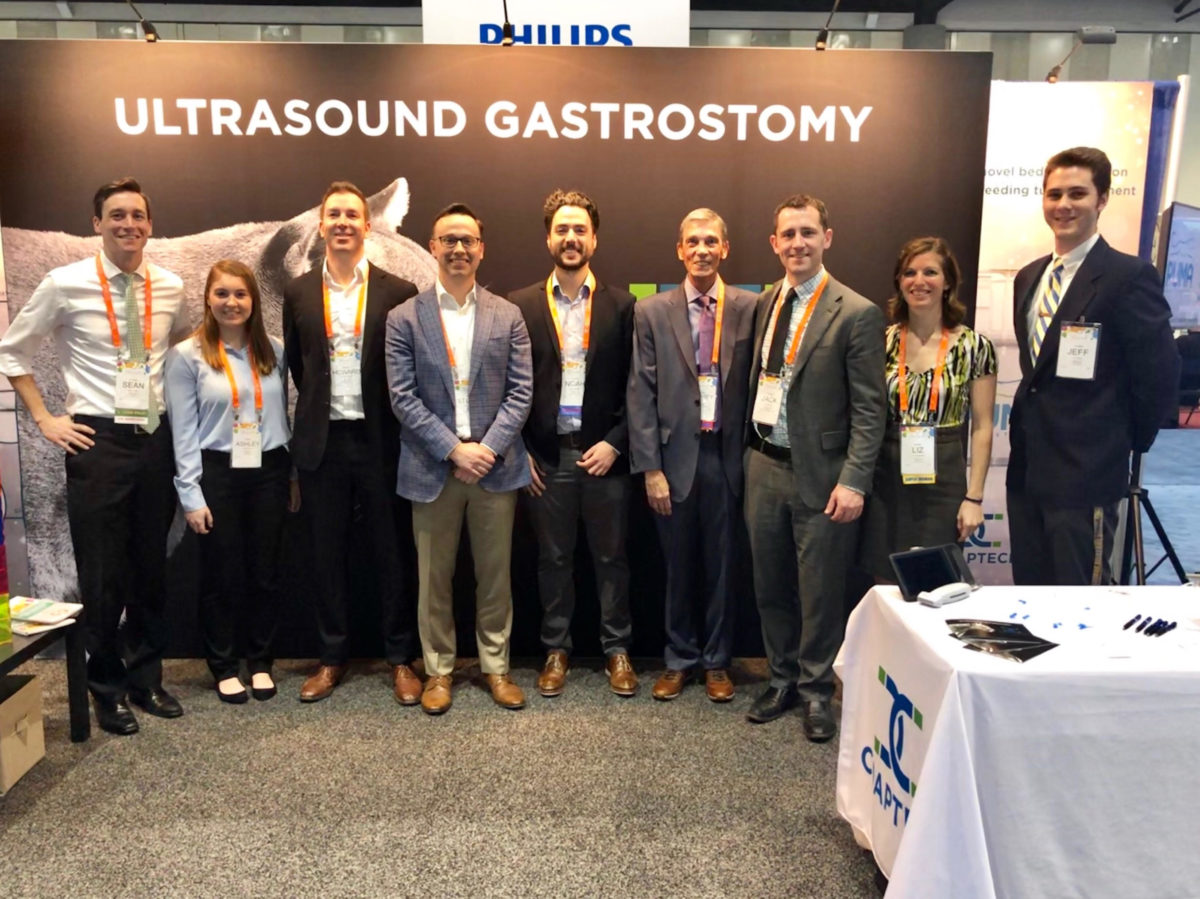A medical device startup that was founded at the University of Maryland, Baltimore received $1.2 million in federal grant funding to conduct a trial at the university’s medical center.
CoapTech, which invented a device that enables a feeding tube to be placed in the stomach using ultrasound, received a Small Business Innovation Research Phase II grant from the National Institute of Diabetes and Digestive and Kidney Diseases.
The funding will provide support as the Port Covington-based company enters a clinical trial at the University of Maryland Medical Center. Enrolling 40 patients, the trial will evaluate cost-effectiveness and safety of the procedure that the device enables, known as percutaneous ultrasound gastrostomy.
Known as the PUMA-G, the device was invented by University of Maryland Medical Center emergency physician and company cofounder Dr. Steven Tropello. In May, CoapTech received clearance from the U.S. Food and Drug Administration. The company said it marked a shift from a research and development phase to commercialization, and clinical trials would be part of that to validate how it works in practice.
Along with being the site where the device was invented, the downtown hospital is also providing the setting for the trial, under the direction of University of Maryland School of Medicine assistant professor Dr. R. Gentry Wilkerson.
“Given the myriad of challenges facing the medical system today, the clinical study could reveal an attractive new model for an easier and significantly less costly workflow allowing hospitals to accomplish the common need of placing a patient’s feeding tube,” CoapTech CEO Howard Carolan said. “The study is designed to demonstrate that many types of physicians can safely complete this procedure in several new settings using point-of-care ultrasound and the PUMA-G device.”
The funding will also support an evaluation by the Johns Hopkins Medicine Armstrong Institute for Patient Safety and Quality. This could aid the company in “distilling best practices for workflow and training in order to enable new users around the world to adopt the device as smoothly and safely as possible,” Carolan said.
Before you go...
Please consider supporting Technical.ly to keep our independent journalism strong. Unlike most business-focused media outlets, we don’t have a paywall. Instead, we count on your personal and organizational support.
Join our growing Slack community
Join 5,000 tech professionals and entrepreneurs in our community Slack today!

The person charged in the UnitedHealthcare CEO shooting had a ton of tech connections

The looming TikTok ban doesn’t strike financial fear into the hearts of creators — it’s community they’re worried about

Where are the country’s most vibrant tech and startup communities?


